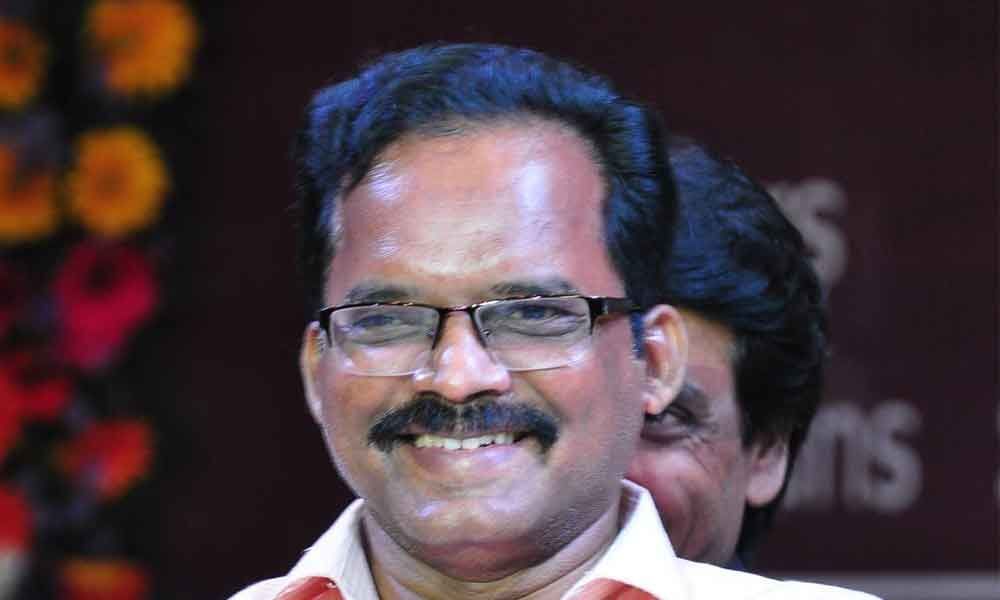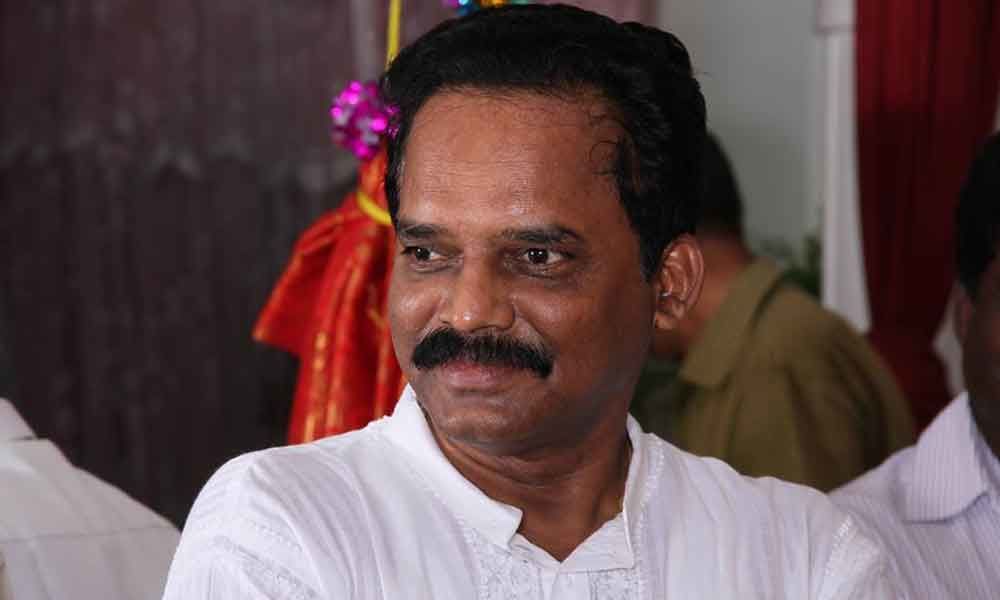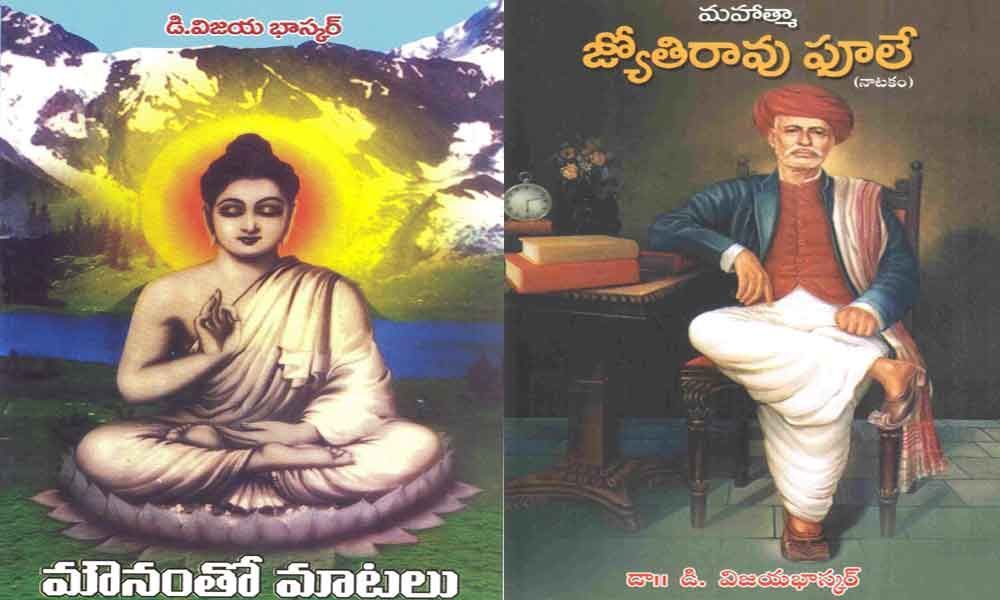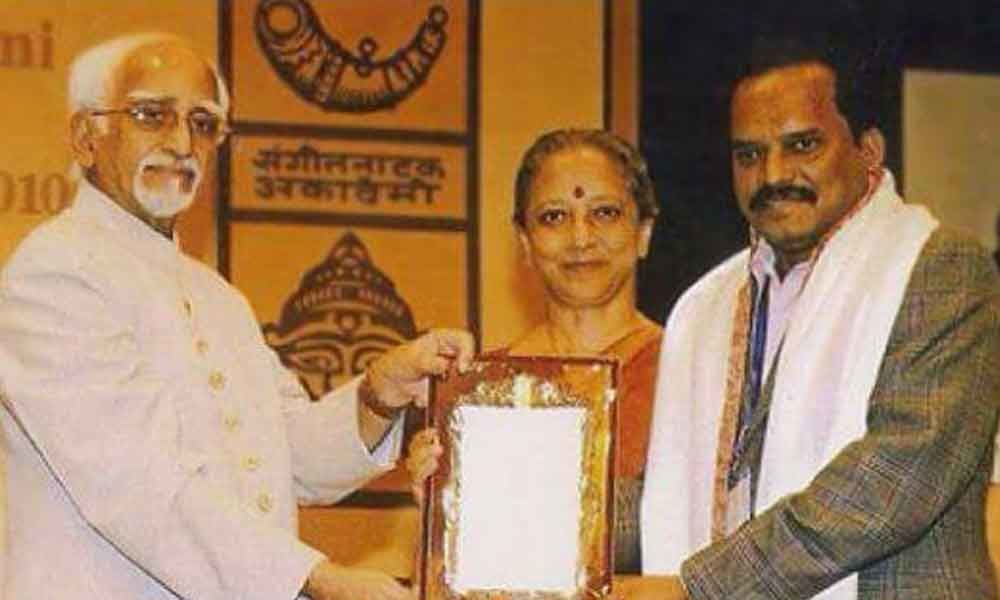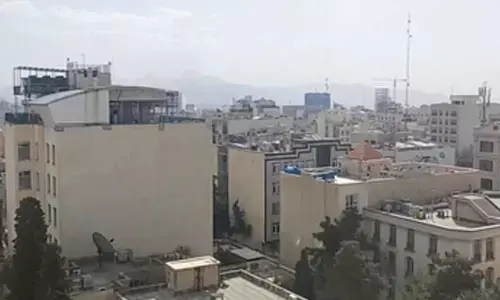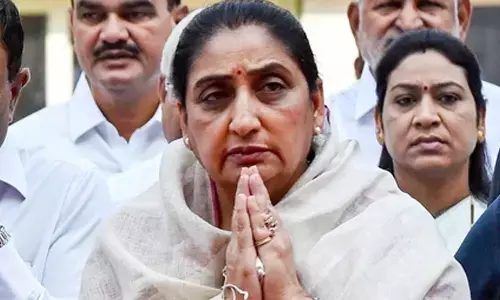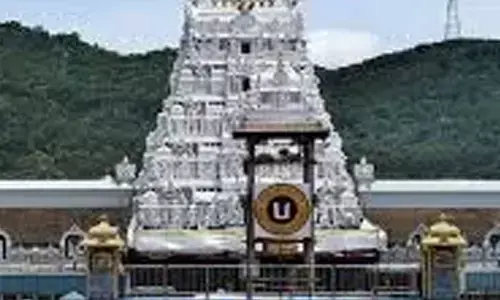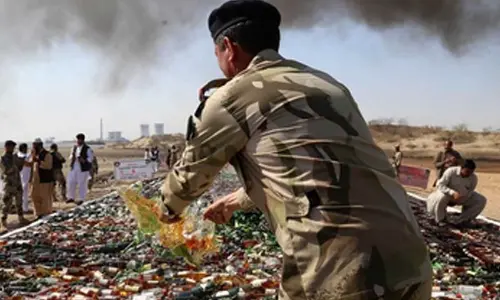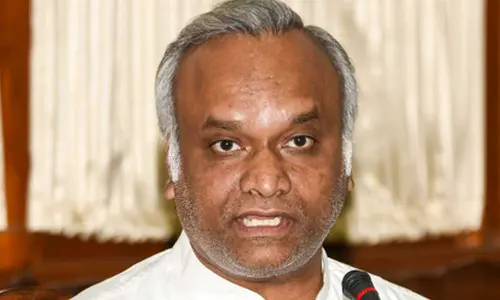Exploring the vast canvas of theatre
Dr Deerghasi Vizai Bhaskar in his plays exposes the double standards in a society divided by caste, class, gender and inequalities of every kind
Theatre doesn't merely entertain. It transcends other art forms in its power to educate, interrogate, provoke, protest, transform and heal.
The elevated stage with its array of characters can in equal measure mirror reality and trigger imagination leaving an indelible impression on audiences whose appreciation catapults them to a larger understanding of human nature and its infinite possibilities.
To quote prolific character actor Willem Dafoe "Great theatre is about challenging how we think and encouraging us to fantasize about a world we aspire to."
Encompassing these qualities of outstanding theatre through a large body of over 26 plays that use myth, mysticism, history and social conflict to provide fascinating narratives and innovative endings laced with optimism is renowned playwright Dr Deerghasi Vizai Bhaskar.
The CEO of the Andhra Pradesh State Creativity and Culture Commission is the recipient of multiple Nandi awards, has been honoured by several cultural organizations and is the only Telugu playwright to win the prestigious Sangeet Natak Akademi award for his outstanding contribution to theatre.
"Change is the only constant in life and theatre chronicles change.
Writing for theatre requires sensitivity, imagination and innovation.
The vastness of the canvas offered to convey different ideologies, views and perspectives through characters that come alive on stage lend it a force and dynamism all its own," says Vizai Bhaskar stressing on the importance of theatre as a medium beyond compare.
Hailing from Ampollu village of Srikakulam district in Northern Andhra Pradesh, he was inspired by the folk-art traditions and mythological plays enacted there.
Beginning his literary journey with short stories while pursuing MA at the Andhra University, he switched to writing plays encouraged by his teacher and mentor, the eminent writer Kalipatnam Rama Rao who noticed his penchant for powerful dialogue.
Vizai Bhaskar followed his teacher's advice beginning with the play 'Toorupu Tellavarindi' (Dawn break in the east) on the plight of weavers in his village and there was no looking back.
"My friendship with theatre personality SK Mishro veered me towards dramatic presentation.
He advised me to write the climax which is the most important aspect of theatre first and then work on the script backwards in contrast to the traditional method of building the narrative all the way up to the climax," he reveals.
Dr Bhaskar's PhD thesis on the German poet, playwright and theatre director Bertolt Brecht perhaps influenced his own work observes Ida Brændholt Lundgaard, Senior Advisor Museums with the Danish Agency for Culture and Palaces in Copenhagen who during her three-month stay at Amaravati studied his works in detail for her research project.
"The dramas of Europeans such as William Shakespeare, Henrik Ibsen and Berthold Brecht resonate in Dr Bhaskar's writings.
His plays dare to investigate the human condition in present-day societies in the same way and with the same transformative power as Isben did in his drama," she opines.
Addressing current socio-political challenges that reflect the social milieu of the land he inhabits; the versatile playwright explores different themes held together by the common thread of contradictions and the underlying unity of contradictory values.
Personal dilemmas of characters, an interaction between them and the conflict they experience with the central theme of the play, are a major pre-occupation seen in multiple works translated into English, Hindi, Kannada, Tamil and Malayalam.
Taking up cudgels on behalf of the oppressed and downtrodden, Dr Vizai Bhaskar exposes the double standards in a society divided by caste, class, gender and inequalities of every kind.
'Drama is a re-creation of the human world aiming to complement the Almighty's unwritten legislation to society,'' he says, even as he experiments with plays that examine different facets of human existence.
In his play 'Hiranyagarbha' the playwright talks about the emergence of a new world after a civilisation wiped out by a huge deluge restructures itself.
Through the process of restructuring and rebuilding, the various systemic ills and traditions that once began with good intentions are examined. "All systems are subject to scrutiny and reformation.
They are never static but dynamic and therefore lend themselves to a process of change," Dr Vizai Bhaskar reasons.
The power of theatre as a medium propelling social change became amply clear from the tremendous response to his play 'Puliswaari' (Riding the Tiger) based on the contentious subject of faction murders that rocked the Rayalaseema region of Andhra Pradesh.
It found resonance with the people of the region particularly the widows of henchmen killed in revenge murders and was staged over 200 times on popular demand.
About 50 widows of factionist violence, who saw the play in a village in Kurnool district are said to have burst into tears appealing for an end to meaningless violence that left many families as theirs orphaned.
He also recalls the case where he changed the ending of a play that was going into print in the last minute after a viewer from the downtrodden sections wanted the tragic end to be changed so that a positive message was sent out to society.
Having changed that ending, he was surprised at the view expressed by another participant at a theatre workshop who stated that changing the ending went against the grain of a writer.
"This led to the realisation that as a writer I was not obliged to change a realistic ending, tragic or otherwise just to encourage or inspire. My writing has to be in consonance with the subject chosen," he avers.
From political satire to philosophical thought, differing perceptions to systemic corruption Dr Vizai Bhaskar's vast and inspiring work has as its fulcrum the many faces of exploitation.
Poetry for him is a spontaneous outpouring of thought which cannot be conveyed through the characters in a drama. His compilation of poetry titled 'Mahashunyam' (The Great Void) falls in this category.
Elaborating further he states, "The subject demands the form.
One needs to say things differently and in a different style. It can't be old wine in a new bottle.
What you say should be new wine in a new bottle."
The celebrated playwright looks forward to a day when a Telugu play or literary work receives international recognition in the form of a Nobel Prize.
"It may be far-fetched but a language as beautiful as Telugu embellished by several great writers and poets deserves it," he declares. Like all his powerful dramas that emerged from radically different thinking, we hope this thought too manifests with equal power.


